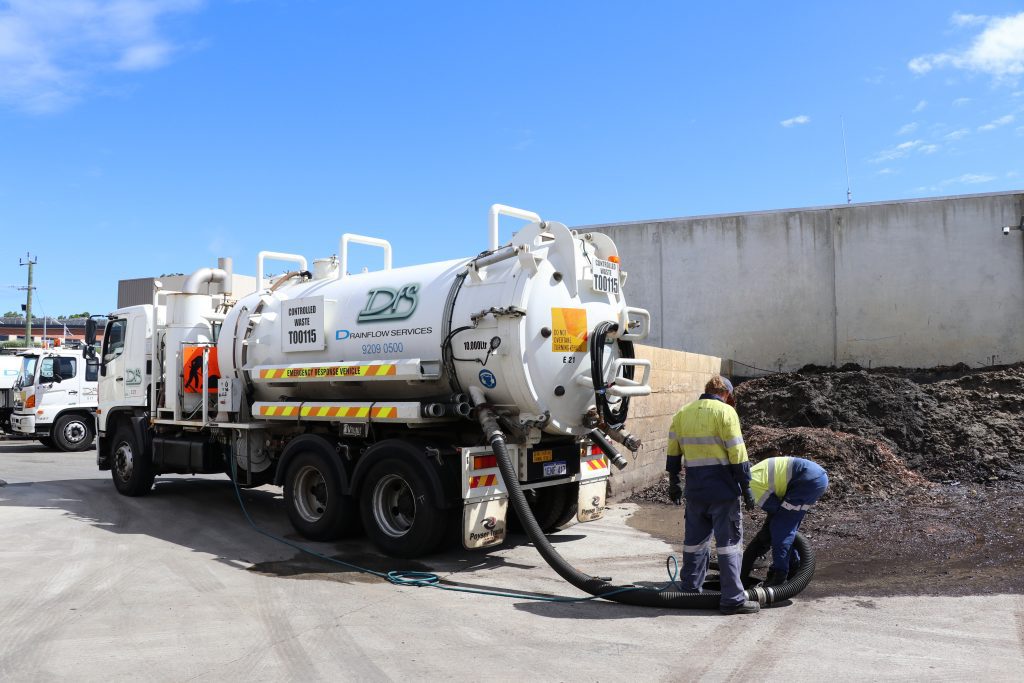Not known Facts About Reclaim Waste
Not known Facts About Reclaim Waste
Blog Article
The Best Guide To Reclaim Waste
Table of ContentsReclaim Waste for DummiesThe Greatest Guide To Reclaim WasteThe Facts About Reclaim Waste RevealedWhat Does Reclaim Waste Mean?The Only Guide for Reclaim Waste
Check out the kinds, occurrences, and forms of fluid waste. Domestic sewage waste refers to the waste and products from a household sewage-disposal tank. This sort of waste is produced by people in residences, schools, and various other structures. This only consists of sewage-disposal tanks that have a drainpipe area. The proper management and disposal of residential sewage waste require fluid waste to be transferred to a sewer treatment plant where the appropriate methods and equipment are related to purify and throw away waste.
Commercial waste typically includes possible threats, such as combustible materials or a mixture of fluid and strong waste items, and requires an extra innovative and in-depth disposal process. The disposal of industrial waste normally involves the filtering of waste before transport to ensure safe and correct disposal. Hazardous waste is produced from by-products and runoff of industrial processes and manufacturing.
This sort of waste can not use the same sewage management transport or processes as septic or industrial liquids. The hazardous waste administration process needs the examination and testing of fluid waste before it goes through the disposal process (liquid waste removal). Overflow waste is the liquid waste that originates from runoff and excess stormwater in highly inhabited areas or cities
Runoff waste can cause contamination and flooding if not taken care of correctly. Find out more concerning drain cleansing and waste monitoring. Making certain proper waste monitoring can prevent calamities and minimize ecological injury. Both individuals in property setups and specialists in business or manufacturing sectors can gain from comprehending the procedures and policies of liquid waste administration.
The 10-Minute Rule for Reclaim Waste
Get in touch with PROS Providers today to find out about our waste administration and disposal solutions and the appropriate ways to take care of the liquid waste you generate.
(http://go.bubbl.us/e67627/7593?/Reclaim-Waste)Do you know what happens to your water when you disengage, flush the toilet or drain the washing machine? No? Well, it's worth recognizing. This so-called 'wastewater' is not just a vital source but, after therapy, will be released to our land, waterways or the sea. Made use of water from toilets, showers, baths, kitchen sinks, washings and commercial procedures is called wastewater.

water used to cool down equipment or tidy plant and equipment). Stormwater, a type of wastewater, is runoff that streams from farming and metropolitan locations such as roofs, parks, gardens, roadways, courses and rain gutters into stormwater drains, after rainfall. Stormwater flows neglected straight to regional creeks or rivers, ultimately reaching the sea.
Unknown Facts About Reclaim Waste
In Queensland, most wastewater is treated at sewage treatment plants. Wastewater is moved from residential or industrial sites through a system of sewers and pump stations, recognized as sewage reticulation, to a sewage treatment plant.
The Department of Natural Resources advises city governments about handling, operating and keeping sewerage systems and treatment plants. In unsewered locations, city governments may call for homeowners to set up private or house sewer treatment systems to deal with domestic wastewater from commodes, cooking areas, bathrooms and laundries. The Department of Natural Resources authorizes using family systems when they are shown to be efficient.
The majority of stormwater obtains no treatment. In some brand-new communities, treatment of some stormwater to remove trash, sand and crushed rock has begun utilizing gross pollutant catches. Wastewater treatment happens in 4 stages: Removes strong issue. Larger solids, such as plastics and other things incorrectly discharged to sewers, are eliminated when wastewater is gone through displays.
Wastewater then flows right into big storage tanks where solids settle and are removed as sludge. Oil and scum are skimmed from the surface. Utilizes little living organisms called micro-organisms to damage down and get rid of continuing to be liquified wastes and fine particles. Micro-organisms and wastes are integrated in the basics sludge. Eliminates nitrogen and phosphorus nutrients that can cause algal flowers in our waterways and intimidate water life.
The Best Strategy To Use For Reclaim Waste
Nutrient elimination is not offered at all sewer therapy plants due to the fact that it needs pricey specialized devices. Clear fluid effluent generated after therapy might still include disease-causing micro-organisms - industrial wastewater treatment.

This typically implies wastewater needs to be treated or impurities eliminated before it can be discharged to waterways. Most wastewater moves right into the sewerage system. Under the Act, local federal governments provide approvals and permits for eco pertinent activities (Ages) including wastewater releases that might have a local impact. The division provides approvals and licences to Periods involving wastewater releases that could have a local or statewide influence.
The Greatest Guide To Reclaim Waste
Tracking gives valid information regarding water quality and can confirm that licence conditions are being satisfied. The information acquired with monitoring supplies the basis for making water top quality choices.
Report this page